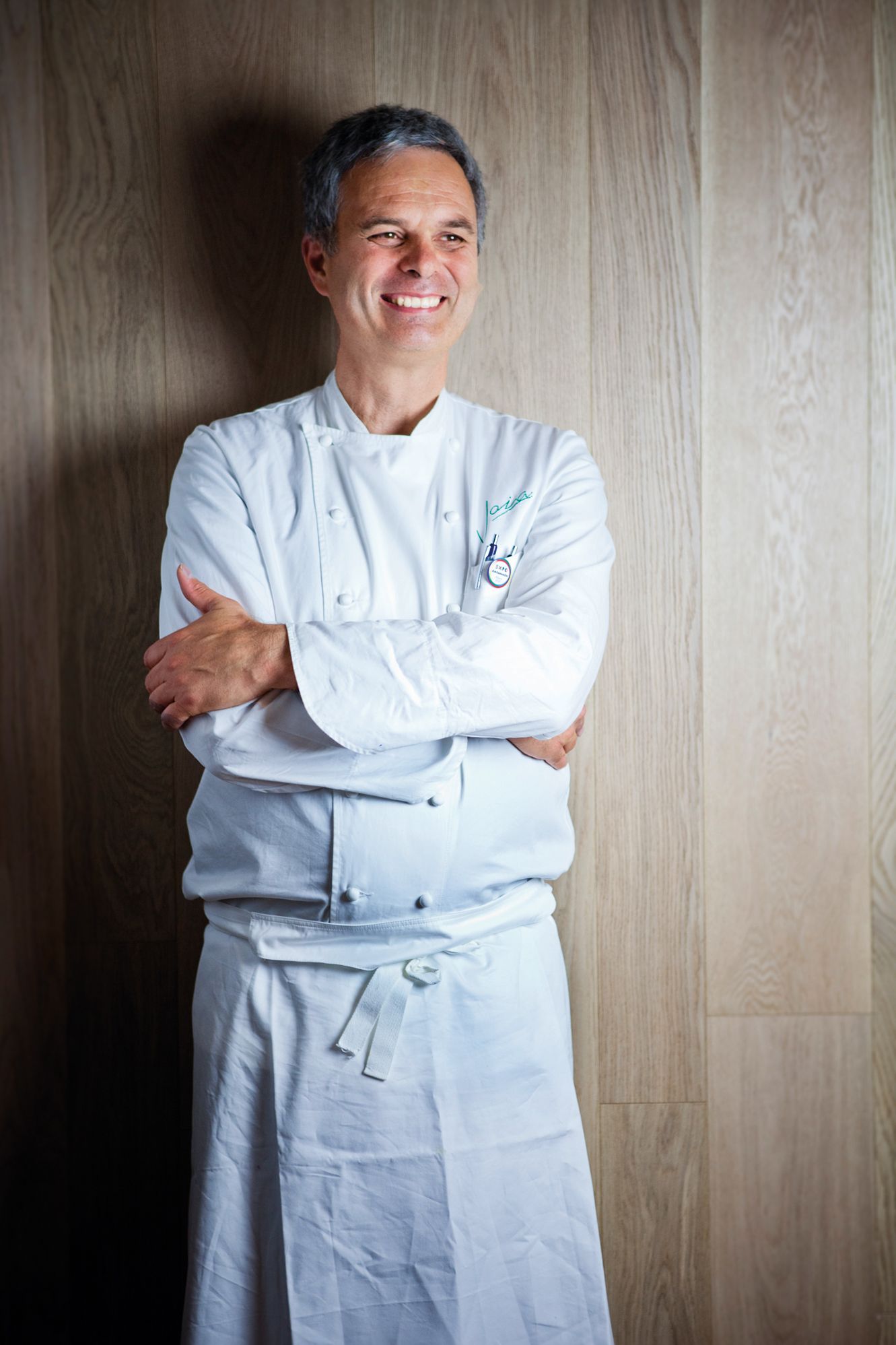From Paris to New York, across Asia, Africa and beyond, vegetarian dining is no longer purely the preserve of hippies and hipsters. Award-winning chefs are creating plant-based dishes that are imaginative, tasty and subtly sophisticated, as well as being healthful and environmentally friendly
It’s late afternoon in a sleepy corner of Paris’ seventh arrondissement. Silver-haired chef Alain Passard strides into the office of his three-star Michelin restaurant, L’Arpège, and smiles warmly, then quickly turns his attention to three yellow quinces on a table. Plucked from a 100-year-old tree, they are a gift from a colleague, and Passard takes one, closes his eyes and inhales deeply. “The smell is so intoxicating, I could fall asleep next to it,” the Frenchman exclaims theatrically, cradling the fruit. “Not a single cologne can rival nature. A fish would never smell like this, nor would chicken. That for me is interesting. That’s a source of inspiration.”
Once, the idea of Passard, a celebrated rôtisseur (a chef specialising in the cooking of meat), swooning over a piece of fruit would have seemed ridiculous. “You went to L’Arpège for a côte de boeuf, a quasi de veau, but then – in a flash – there was a plate of carrots instead,” says the chef, who, in 2001, shocked the culinary world by wiping meat off his menu, erasing every dish that had earned him his stars. “Everyone warned me that it was a death sentence,” Passard says, admitting that his restaurant initially lost many customers. But he was determined. “It was about renewing myself,” the 61-year-old says. “Vegetarian cooking was a book that hadn’t been opened by many people, which made it special.”

Passard has since become something of a poster boy for vegetarian cuisine in Europe, and 60 per cent of visitors to L’Arpège opt for his seasonal vegetable tasting menus, which feature dishes ranging from an intricate céleri-rave carpaccio adorned with walnut and pear, to multi-coloured vegetable ravioli in a delicate consommé, made with fresh produce from Passard’s own farms. His appearance on award-wining Netflix series Chef’s Table, along with a new wave of green-thumbed culinary geniuses, has raised the profile of plant-based cuisine. “I think the decision I took had direct consequences on many chefs and households,” he says, arguing that Michelin’s seal of approval is helping to convert sceptics.
Trends such as ‘meatless Monday’ have gathered momentum worldwide in recent years, and vegetarian dishes are more sophisticated, varied and imaginative than ever before. No longer relegated to health-food havens and hipster hangouts, vegetable-heavy menus have entered the temples of haute cuisine. “In the last five to six years, people have changed very fast to become more health-conscious,” says chef Pietro Leemann of Joia in Milan, the first vegetarian restaurant to gain a Michelin star in Europe. “It’s no longer possible to eat so much meat because people are becoming sick. They are also concerned about the planet. Most of my guests are not vegetarians. Many of them are gourmands with an open mind.”
A long-time vegetarian himself, Leemann grew jaded with European nouvelle cuisine in the 1980s. “Every chef in Europe was cooking in the French style, and their creativity stayed more or less the same,” he says, describing such dishes as heavy and unbalanced, with too much protein, sugar and fat. Trips to China and Japan were turning points for the chef, who became fascinated with Asian cuisine and adopted meditation, tai chi and yoga.




